When the pain of loss is intertwined with betrayal. One year after the missile attack on Hroza in the Kharkiv region
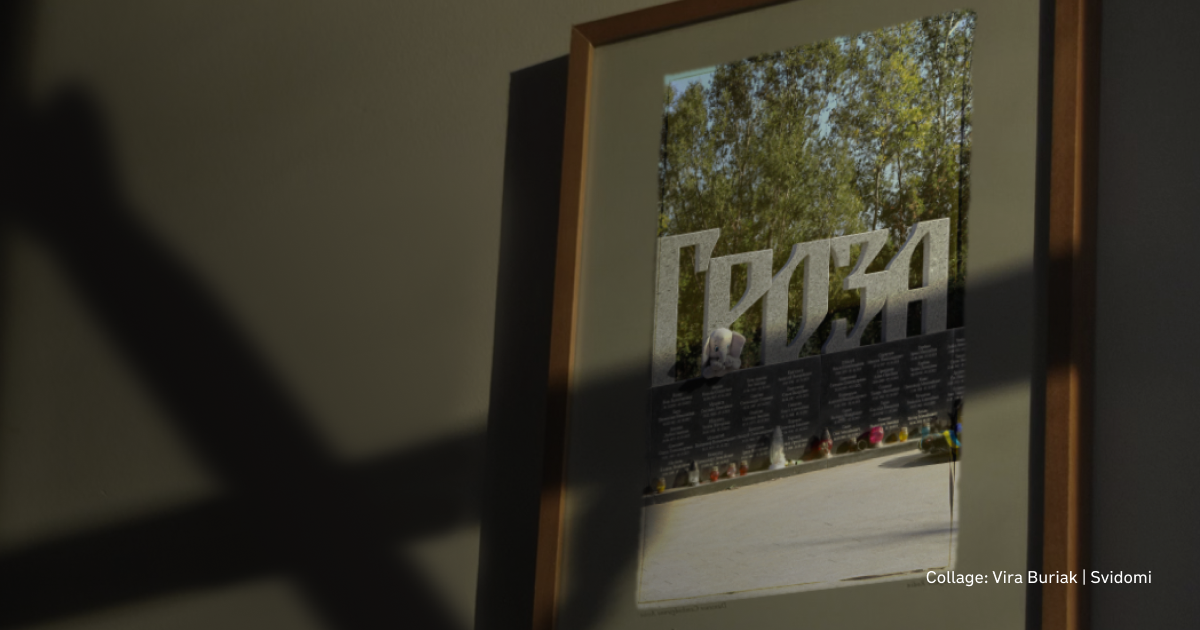
Two years ago, the Ukrainian army de-occupied the village of Hroza in the Kharkiv region. On October 5, 2023, the residents of Hroza gathered for the reburial of the soldier Andrii Kozyr. Over fifty villagers came to the café for a memorial meal. At 1.25 p.m., a Russian missile destroyed то the building, killing 59 villagers in and around it. For several days afterwards, white body bags lay in the playground next to the former café.
The 320 inhabitants of Hroza have maintained close ties for generations. At weekends, they gathered in the village's only café, and during the week, they worked in the neighbouring fields. The gravestones in the local cemetery read the same names over and over again.
After the attack on the café, the Security Service of Ukraine announced that two former local residents, brothers Volodymyr and Dmytro Mamon, were suspected of guiding the missile. They had collaborated with Russian troops during the occupation (Hroza was captured by Russian forces early in the invasion and liberated by Ukraine during the Kharkiv counter-offensive in September 2022 — ed).
Marking the first year since the tragedy, Svidomi tells how the locals are honouring the memory of the victims and learning to trust again.
Those killed by Russia
1973, 1999, 2001, 1960, 2015... Dozens of faces of grown men, young women and small children look at me from the photographs on the crosses. Born in different years, they have the same surname and the same date of death — October 5, 2023.
The village of Hroza begins with a cemetery near a dirt road. It is not designed for so many burials. Some graves are dug by the side of the track. A year ago, dozens of people were at the cemetery in Hroza, digging graves for the coffins of their relatives and friends. Utility workers from neighbouring villages and towns came to help the locals and funeral service workers bury the dead.
The first burials began on October 7. That was when they said goodbye to Mykola Androsovych and his wife Tetiana. Two days later they said goodbye to Halyna Chykalo, Oleksandr Khodak, Iryna and Tetiana Kharbak. From October 7, two to five people were buried each day at the cemetery. The burials took place in two cemeteries — in Hroza and Shevchenkove.
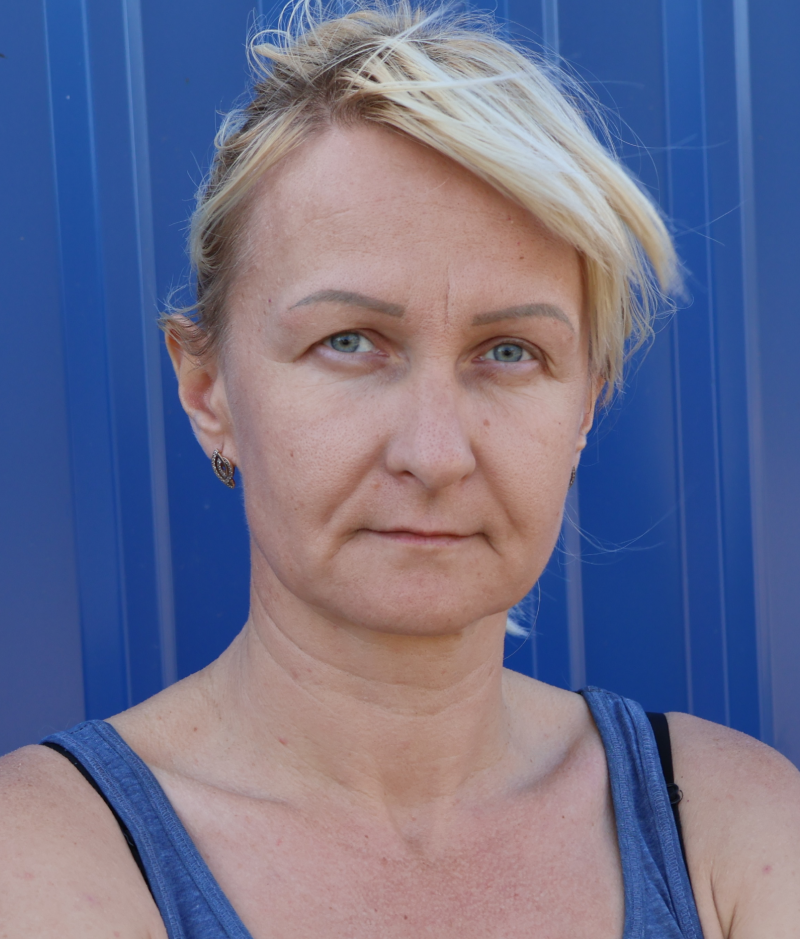
"About a dozen people from Shevchenkove came to the reburial and memorial meal of Andrii Kozyr, so they were buried closer to home. Natalia lived opposite us. Her mother was from Novostepanivka, so Natalia was buried next to her mother. Her husband, like many of our fellow villagers, remained in the cemetery in Hroza,"
says Natalia Berezanets, a native of Hroza.
On the graves of those who died in the shelling, there are identical crosses with photographs of the dead. They are easy to distinguish from the others. Tall trees do not shield the faces in the photographs. They have faded over the year. The graves had just been cleaned. Someone had raked the grassy ground and placed biscuits and sweets on the graves.
Last year, on the fourth day of the burials, I stood in the cemetery wearing a warm jacket, and now my sleeveless arms are burning under the scorching sun. It is September 28th. One week to go to the first anniversary of the Hroza shelling.
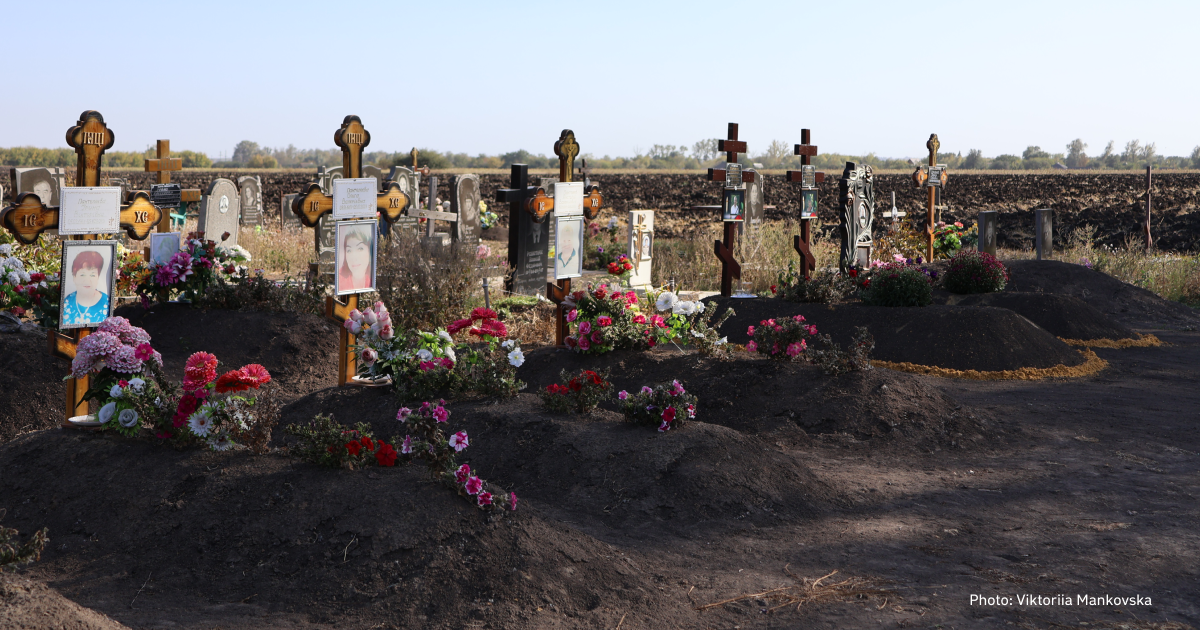
Those who remember but no longer trust
Civilian cars are increasingly rare on the road to Hroza, 35 kilometres from Kupiansk. In September, the Russian army stepped up its offensive towards Kupiansk, advancing several kilometres into the Kharkiv region. But Hroza residents say they hardly hear explosions and describe their village as a 'safe area'.
The café hit by the Russian missile was in the centre of the village. Now there is a memorial to the victims of the attack. The relatives decided to build the memorial last year — they drew up a sketch and found donors to help pay for it. The local government helped to clear the area. On July 19, a memorial to the victims was unveiled at the site of the attack.
Investigators have been working there for the past year, placing the bodies in white bags and examining the ashes for DNA to identify the victims. Locals brought flowers and children's toys, and relatives came to mourn in private. Here they tried to hide their tears from their children.
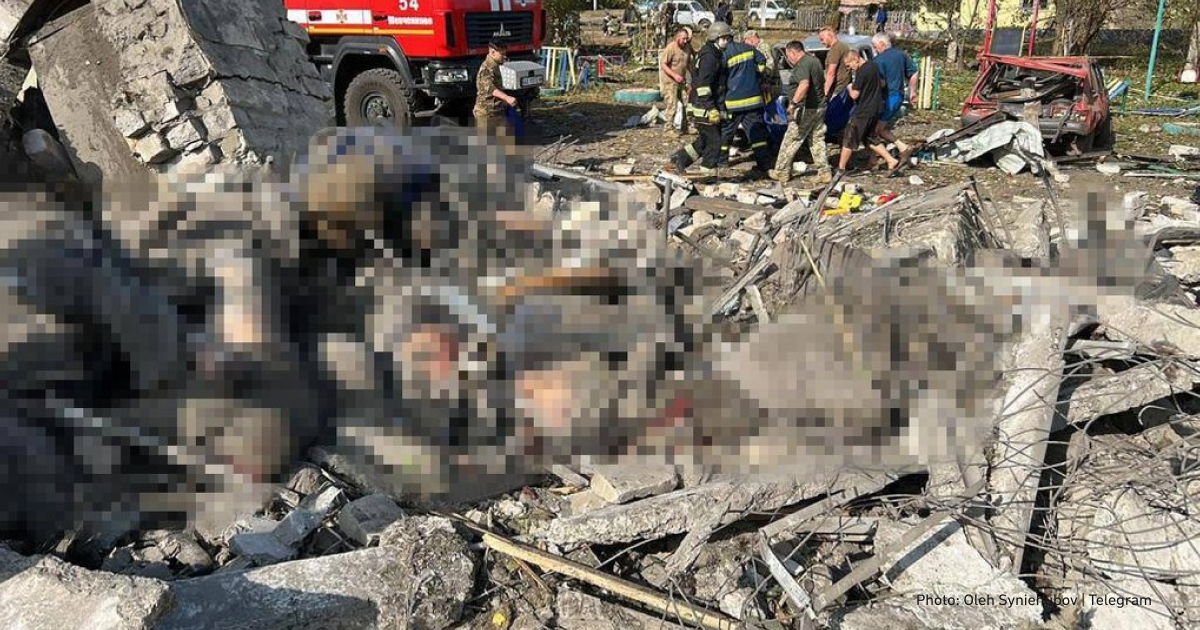
Almost every other house had a coffin. People dressed in black waited at the gate, their heads bowed. A priest visited each one in turn. The courtyards were shaken by loud cries and questions: "Why you and not me?”
White bags on the site of the destroyed café are now filled with cement. Two women and a man sit on benches near the memorial. When I approached them and asked if they had time to talk, one of the women replied,
"Of course, but don't film us because we've come to clean the graves. The anniversary of the shelling is coming up."
This is Olha Bezpala. She approaches the monument and points to the names of three relatives she lost during the shelling of Hroza. Next to her are Liubov and Valerii Kozyr. The man buried his daughter, son-in-law and in-laws last year. He looks after his grandchildren Daryna, Dmytro and Anastasiia Panteleievs after their parents died.
Wiping her hands on a napkin, Olha says the monument cost 300,000 hryvnias to build. "Some people thought we collected a million and embezzled 700,000, but that's not true," says Olha. "We built this monument for our dead relatives and friends, we didn't put anything into our pockets."
In the summer, the people of Hroza had a conflict because the owner of the destroyed café had set up a shop near the memorial. Some of the villagers objected.
"We need a shop, but not in the place where the blood of my friends, neighbours and cousins was shed. They say a shop will open, it will be nice to drop by, buy ice cream, come to the memorial... But I don't think it's right. Someone will buy a bottle of beer and drink it there. We don't mind the shop! Let them build three more so we don't have to commute, but not in this place," says Olha, a resident.
According to Viktoriia Herasymenko, the daughter of one of the victims, 12 people signed a collective appeal to the head of the military administration, Serhii Starikov, to ban trade at the site of the attack.
"What is it like when there are no shops in the village? And when you go there, everything is nice, there is food. We had a shop, but there were few goods. But the owner of the land said he wanted to bring the village to life," says Olha Bezpala.
"Now we hardly communicate with some of our fellow villagers," says Liubov Kozyr.
"There is mistrust in the village, and it's understandable," adds Valerii Kozyr.
The man nods in the direction of the monument, and we start talking about the Mamon brothers. They are suspected of guiding a missile at Hroza.
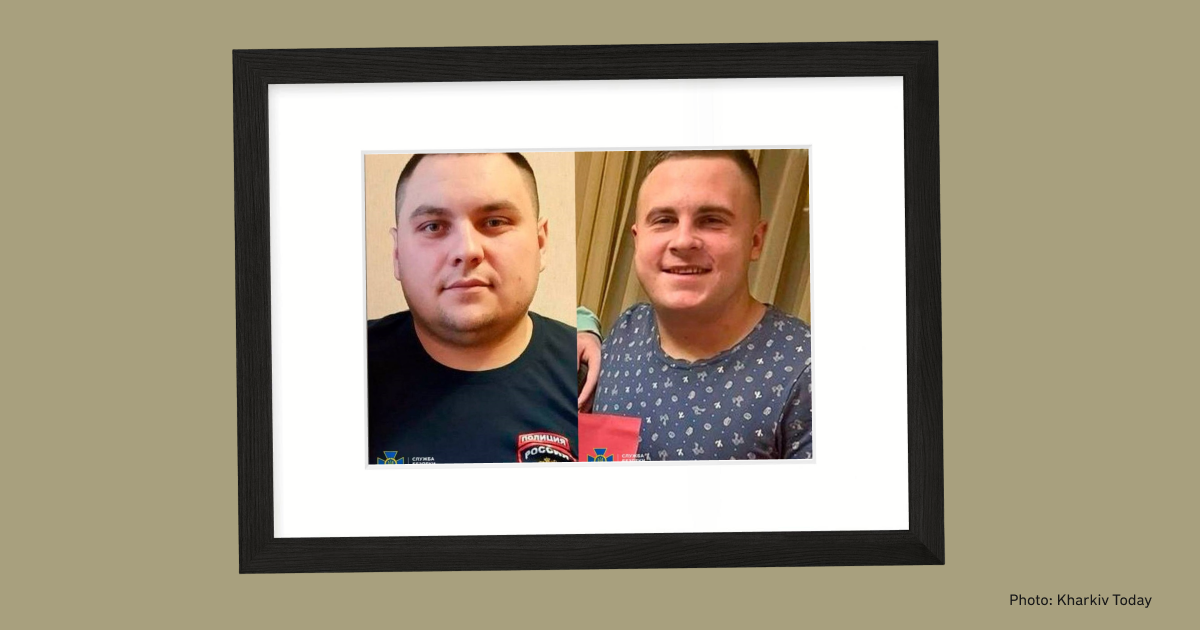
Those who betray those closest to them are dangerous to those who protect their own
Andrii Kozyr settled in Hroza in the late 1990s. After his parents died, he and his wife Alina moved into their house and had two children. Later, Kozyr found a job abroad. First, he worked on a construction site in Russia, and after the outbreak of war in 2014 he went to Poland.
Andrii's son Denys Kozyr went to college in Kupiansk and lived in the same dormitory as Dmytro Mamon, one of the three brothers. When Denys turned 18 in 2017, he went to work for his father in Warsaw. In 2019, Andrii's adult daughter Liza also went to live with her father and brother in Poland, promising to return home in a few weeks. Later, Liza found a job in a cafe and said she would stay.
Alina Kozyr missed her family and could no longer stay alone in the village. She decided to go to Poland and soon found a job as a maid in a hotel. The family rented an apartment in Warsaw and returned to Hroza less and less. Instead, Alina's parents, Mykola and Nina Hryb, looked after their home.
The Hrybs were close to the Mamon family. Mykola Hryb and Serhii Mamon, the family's father, ran the farm. Natalia Mamon, Serhii's wife, worked in a village cafe where the locals often gathered. She and Nina Hryb sometimes went to Shevchenkove to buy groceries or cooked together while their husbands worked.
The Mamons' and Kozyrs' children lived next door, played on the same sports field and kept in close touch. When the Mamon brothers grew up, all three became policemen. Locals do not recall any of them taking a pro-Russian stance at the time.
When the full-scale invasion began, the Kozyr family was in Poland. Andrii and Denys decided to return to Ukraine and join the army. Alina Kozyr was worried about her husband and son. Especially for Andrii, who had problems with his eyesight and could not raise his right arm above his shoulder after a previous injury.
But in the first days of the full-scale invasion, both father and son ended up at the front in the east of Ukraine. A few weeks later, Andrii was shot in the neck. He died in a hospital in Dnipro on March 29, 2022. Hroza was under Russian occupation from the first day of the invasion, so the soldier was buried in the Dnipropetrovsk region.
According to residents, about half of the village supported Ukraine and tried to avoid Russian soldiers.
"We seemed to be even closer to some of the locals. Sometimes in the evening, we would gather in a group in a house because we had a pro-Ukrainian position. That's what we were gathering around, waiting for Ukraine,” says Natalia Berezanets, a native of the area.
A certain part of the village had no clear position. Some openly welcomed the Russians, while others later explained it as a necessity for survival.
The Mamons were the family that most clearly supported the Russians. The parents allowed the soldiers to stay in their house, and all three brothers worked at the occupation police station in Shevchenkove.
Volodymyr Mamon, who was 28 at the start of the occupation, was appointed 'head of criminal investigation'. The Russians gave him a white Soviet-era SUV, with a “Z,” a symbol of the Russian military, scrawled on the side. He drove around the district, showing Russian soldiers where Ukrainian veterans lived.
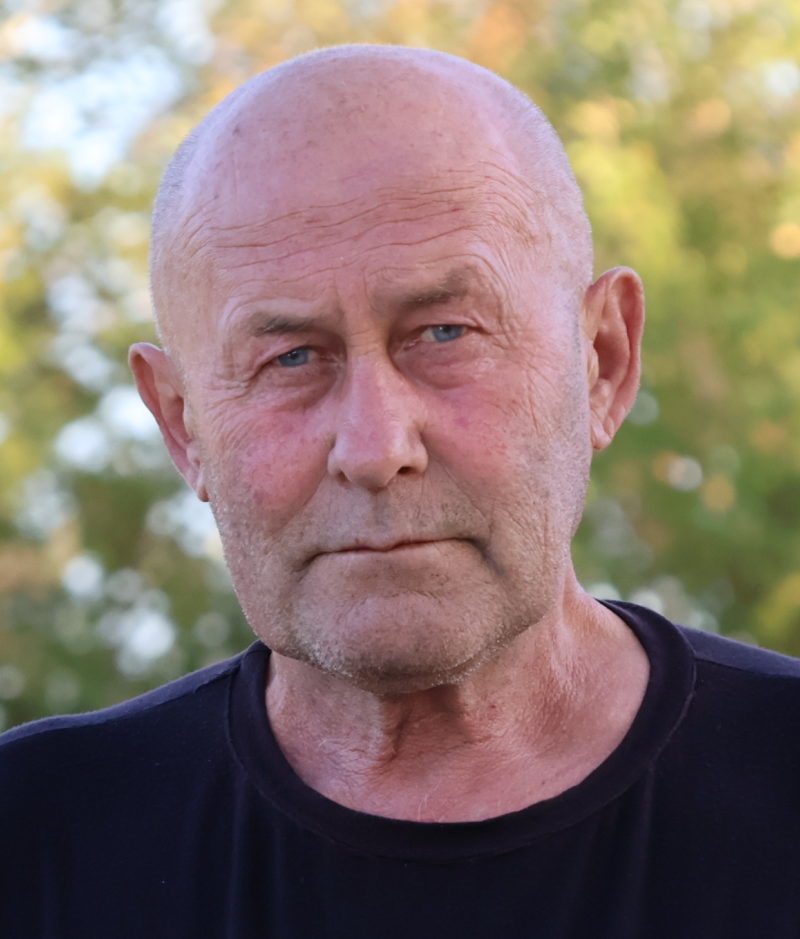
“It was obvious that the elder brother was a bad person. But I can't say anything about the younger one. Our boys grew up together. It's hard to believe that he could do this,”
says Valerii Kozyr.
According to sisters Nataliia Berezanets and Olha Yaremchuk, in July 2022, Lyudmila and Vasyl Pletinka said, all three Mamon brothers showed up at their house along with a handful of Russian soldiers, looking for her son, Serhii, a veteran of the Anti-Terrorist Operation (ATO).
"Serhii was beaten and taken to Kupiansk. His mother Liudmyla went to ask for his release," adds Natalia Berezanets.
There were signs, however, that the Mamons had not completely forgotten their old friends. According to the Wall Street Journal, Dmytro Mamon visited local Oleksandr Mukhovatyi, his former friend, once during the occupation. When the conversation turned to the war, Dmytro, then 21, said he thought the stories about Bucha, a town near Kyiv where hundreds of civilians were killed by Russians, were fake.
"We’ll be good with Russia. Putin is a good person," Mukhovatyi recalled Dmytro Mamon saying.
Oleksandr said what he then replied: "Are you out of your mind? People you knew died protecting this country.” Apparently, Dmytro did not tell the Russian military about this conversation, so they never showed up at Oleksandr's door. "He didn't tell them I was pro-Ukrainian," says Mukhovatyi, "otherwise, I would have been in trouble."
Several dozen residents, including the Mamon family, fled with the Russians in September 2022, just before the occupation. "The Mamons understood that if they did not flee, they would be tried," says Natalia Berezanets.
Mykola Hryb, Alina's father, remained friendly with the Mamons during the occupation, several residents said. As a result, some people were suspicious of his family. But after the village was liberated, Hryb insisted that Andrii Kozyr be reburied in Hroza. Denys Kozyr also wanted his father to be buried in the village, and he spent a long time gathering documents and permissions. Mykola helped him. Later he invited the whole village to the memorial service.
Alina and Liza Kozyr returned from Poland for the reburial. Denys, who was discharged from the military in 2022 and married a local woman, Nina, also came. Some who hadn’t known Andrii Kozyr especially well showed up.
According to the Security Service of Ukraine, the Mamon brothers found out about the funeral and the memorial meal. Text messages released by the SSU show that Volodymyr Mamon found out about the funeral from villagers and discussed with Dmytro Mamon what he had told the Russians.
"I explained that there would be civilians there," he wrote to his brother, adding that the Russians were unlikely to hit a civilian gathering.
The strike killed the entire Kozyr family, as well as Mykola and Nina Hryb. Oleksandr Mukhovatyi lost his parents and his grandmother.
"I asked the police. They said that the older one used the younger one in the 'dark'. He didn't know it would happen," adds Valerii Kozyr.
Prosecutors charged both Mamon brothers with high treason. They were tried in absentia in Kharkiv and Poltava. The men face life imprisonment for their actions.
Those who go on living and waiting
Three children are sitting in front of a shop. They are talking quietly and laughing loudly at each other's jokes. Locals on bicycles pass by every five minutes. "People don't come back, but hardly anyone leaves. Somehow everyone stays at home," says Olha Bezpala.
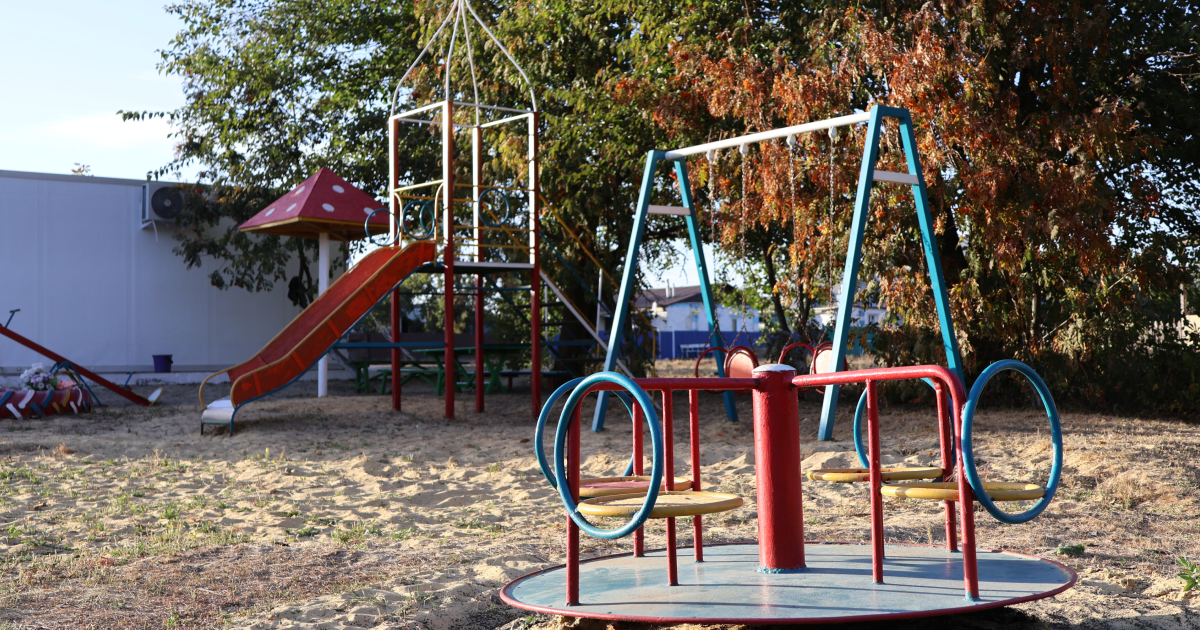
The administration building, which the locals call 'the accounting office', was destroyed in a missile strike. In the neighbouring street, there is a club where humanitarian aid and mail are delivered once a week. Children say there are no sports sections or clubs in the village. They study online because of the security situation.
During the occupation, the Russian military took several locals away for interrogation. Some never returned. "Our fellow villager Viktor Rudenko was arrested in Russia. Probably one of the locals pointed him out. For a long time, we did not know where he was or what had happened to him, but recently we saw Viktor on the news," says Natalia Berezanets.
In Saint Petersburg, a city court found Viktor Rudenko guilty of "espionage" and sentenced him to 10 years in a maximum security prison. He was accused of gathering information against the Russian army in Ukraine. He pleaded not guilty, saying he was acting in the interests of his country.
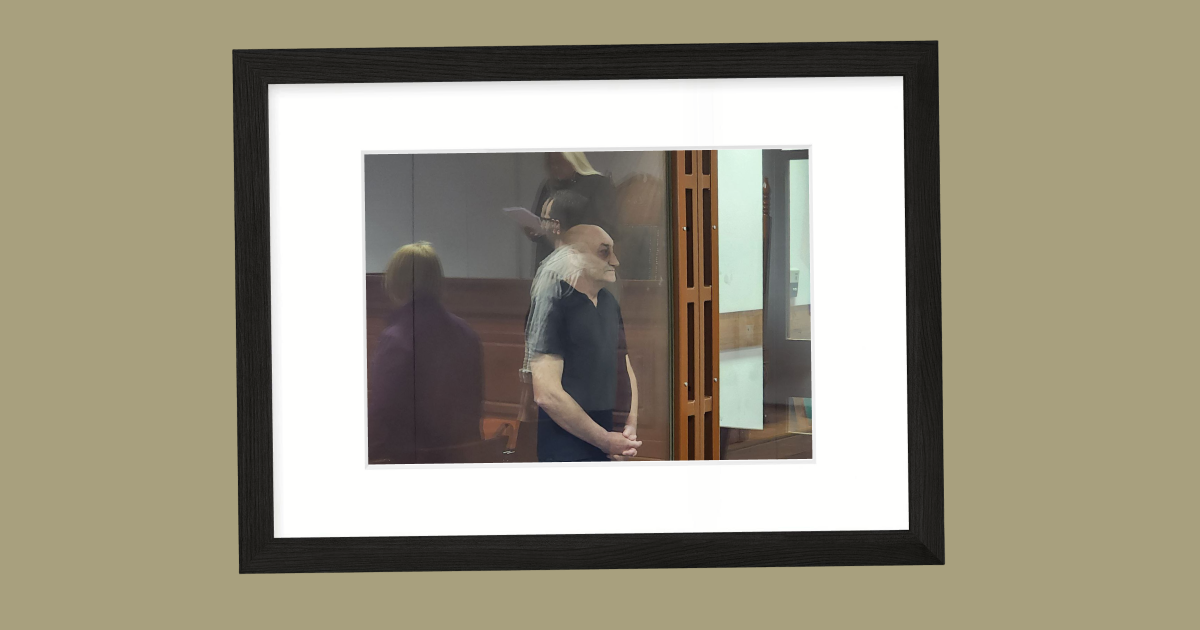
Viktor's mother lives in the village of Hroza. "It is good that she has at least found out that he is alive. Maybe one day there will be an exchange, maybe there is hope for his return," adds Natalia.
On the way from Hroza to Kharkiv, I notice people with cameras. Valerii Kozyr tells me that journalists from Latvia are coming to the village a week before the commemorations — they have arranged a meeting with him by phone.
"You know, I want people to know that war is terrible. I am ready to talk about it. War must never happen anywhere else," says Valerii.
The scorching sun was already setting, failing to illuminate the faces on the crosses. The people of Hroza now avoid large gatherings in one place. They say they are afraid of another tragedy. Some people turn on airplane mode on their mobile phones when they gather with more than four people.
Every house in Hroza will mark one year since the tragedy and honour the memory of the victims. But for now, they will do so separately because there are still people in the village they can never trust.


